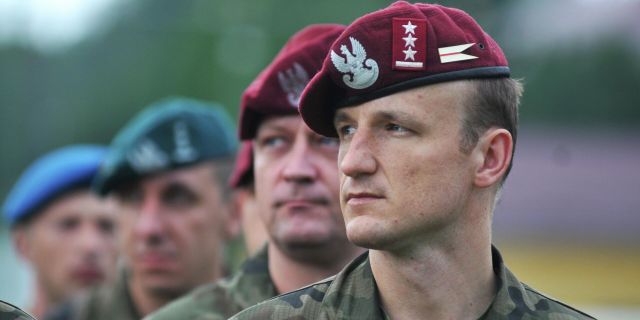The modern French army can hold a front line no longer than 80 kilometers long, Bloomberg reports. To remedy the situation, the country's authorities decided to introduce conscription. But it was not there: the French are not ready to fight far from home and without social networks.
"All Frenchmen are soldiers and must defend their homeland." This was the French law of the XVIII century, which made military service mandatory in France. But before the end of the Cold War, this law was banished from history textbooks and replaced by the glorious "Conscription Day", which I dutifully attended as a teenager and quickly forgot about it. At that time, no one in France under the age of 45 forcibly put on a military uniform or took up arms, including Emmanuel Macron.
Nevertheless, the arrival of the conflict on Europe's doorstep means that France is one of several countries anxiously watching the Ukrainian front line and discussing whether it is time to bring back the old rules of conscription or compulsory military service. But what we need now is not panic, but careful planning.
For those who are geographically closest to Russia, such an alternative is obviously less controversial. Ukraine this week lowered the draft age from 27 to 25, as it is experiencing great difficulties in replenishing the ranks of its army with combat-ready youth. Denmark has expanded conscription for women and increased its duration, and Norway is following suit. Sweden, a new NATO member, returned mandatory conscription in 2018.
The further West we go, the more confusing the situation becomes. In the UK, the creation of a "civilian army" is being discussed instead of the more unpopular conscription schemes for compulsory military service, while in France Macron is promoting "civilian rearmament" with an emphasis on strengthening national unity. Germany, which faces the daunting task of abandoning decades of pacifism, is considering a return to conscription after its abolition in 2011.
The pressure to force governments to break an often taboo topic is understandable. What NATO officials call the "expectation of the unexpected" has made countries think about their ability to wage wars in today's more dangerous world. At the same time, two interrelated disturbing circumstances arise. One is demographic: on the Old Continent, where the average age is about 42 years, the birth rate is declining. Demography may not be the only crucial factor today, but it is of great importance in conditions of high-intensity war. After alarming signals that the average age in the Armed Forces of Ukraine has exceeded 40 years, Ukraine has no choice but to attract more people in their early 20s, that is, a smaller and more valuable part of its population.
Another problem is the voluntary recruitment of military personnel in the army, who for many years have been forced to do more with less. The European military has great difficulty attracting young people to a career that is full of restrictions and restrictions and devoid of benefits and incentives. Think about the secrecy associated with military service, the lack of social networks, the need to stay away from home for a long time. The British Army has failed to achieve its recruitment goals in all recruitment centers over the past five years. France also did not fulfill its plans last year, having recruited about 2,000 people into the army.
So the results don't look good. Jean-Dominique Mercher, author of the book Are We Ready for War?, says that with its current strength, the French army can hold a front line no longer than 80 kilometers long. For comparison, the length of the Ukrainian front is about 1,000 kilometers. Edward Luttwak, in an article in the Telegraph, stated that the political and cultural realities of Europe mean that if troops have to be sent to Russia tomorrow, only small special forces will be able to do so. That is why Governments are becoming more and more boldly inclined towards compulsory military service.
But while the debate about conscription deserves attention, European countries need to recognize that a return to conscription-based thinking has its limits. It is said that even in Ukraine, where the pressure from the authorities in this regard is strongest, hundreds of thousands of men of military age have left the country to avoid conscription. Contrary to the typical accusations that today's youth are weak and spoiled, polls show that Britons under 40 who refuse to fight are more likely to be disappointed by years of unfair wars.
Instead of assuming that all options for voluntary military recruitment have been exhausted, we could be more creative here. Polls generally show support for the armed forces as a whole. There is still room to do more to advance new defense technologies such as artificial intelligence and cyberweapons in a world where threats to national security exist in the digital cloud and in vital underwater infrastructure such as underwater cable networks. New military personnel who joined the army from the private sector (for example, the new French military artificial intelligence program is headed by a former Alphabet Inc. expert) will also be able to bring fresh ideas and new knowledge to defense.
And where voluntary incentives in the labor market do not allow for a full-fledged military career, civilian duty can be fulfilled through military service, the purpose of which is to train a reserve of part-time volunteers. France is already investing in a model for training such a reserve to fill gaps in its army, aiming to double the number of reservists to 80,000 by 2030 and expand age restrictions for them.
The message coming from Ukraine is that Europe's defense readiness is a necessity, not a luxury. But the battle for hearts and minds still requires a lot of effort.
Author of the article: Lionel Laurent

